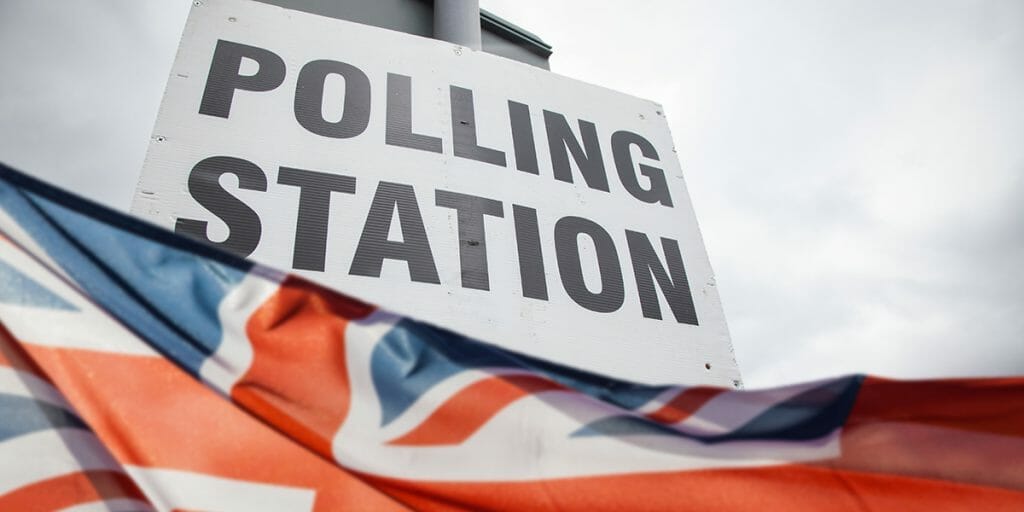 It’s something most of us are unlikely to have given much thought to, except that the last few years of political discourse in the UK and the upcoming 3rd election due in Dec 2019 in relatively short time has made most people more aware of politics. Consequently, some changes in relationships, creative vocalisations and political ballet dancing on thin wires has presented a complicated, and frustrating period in political and population wellbeing.
It’s something most of us are unlikely to have given much thought to, except that the last few years of political discourse in the UK and the upcoming 3rd election due in Dec 2019 in relatively short time has made most people more aware of politics. Consequently, some changes in relationships, creative vocalisations and political ballet dancing on thin wires has presented a complicated, and frustrating period in political and population wellbeing.
Population wellbeing is an aggregate measure of positive mental, physical, and emotional health, and has previously been used as a marker of community thriving and perhaps should also be regarded as a factor in political outcomes. A chapter published in the world happiness report by George Ward of the Massachusetts Institute of Technology suggests that happiness (life satisfaction or subjective well-being) also plays a major role.
Factors, including not only GDP per capita, but a person’s health, social support, freedom, generosity, and perceptions of government corruption, make up the elements of happiness in the annual World Happiness Report (WHR).
You may of course have some very strong views on the ongoing turmoil, or you may be politically benign about the changes, but unless you have mastered the art of being a ‘news recluse’ the impact of the challenges involving a separation from a longstanding partner is proving to be more challenging than many of the more protracted media divorces we are sometimes subjected to!
Your state of mind it appears also influences your decision to vote and of course participate in other activities, some of which may be lifestyle changes. One clear influence on activity and social engagement and it appears political voting is happiness, which has been defined as ‘a state of inner joy, which comes about when the mind becomes quiet, free from restless thinking and worries.’
 Why you may ask is a nutrition and lifestyle article looking at politics and happiness? Well in part because politics has a significant role in the health of a large part of the population and the current challenge relating to our planned departure from the EU may also have unexpected consequences on the health of an entire population, even before they directly affect someone’s employment, business or immigration status. In fact in April of 2019 one survey indicated that one third of adults claimed that Brexit had affected their mental health being, a significant number of people.
Why you may ask is a nutrition and lifestyle article looking at politics and happiness? Well in part because politics has a significant role in the health of a large part of the population and the current challenge relating to our planned departure from the EU may also have unexpected consequences on the health of an entire population, even before they directly affect someone’s employment, business or immigration status. In fact in April of 2019 one survey indicated that one third of adults claimed that Brexit had affected their mental health being, a significant number of people.
Looking at the other side of the impact of happiness on voters, the World Values Survey which is a large cross-national survey including respondents from over 100 countries worldwide, tried to shed some empirical light on the issue. They investigated the basic relationship between happiness and individuals’ self-reported “interest in politics”. The question has been asked in 310 national surveys in 103 countries since the early 1980s, alongside a 4-point overall happiness question. They found that very unhappy people are more likely to be disengaged from politics. Happier people are more likely to be engaged, but this relationship flattens off at higher levels of happiness. Once a range of demographics such as education, marital status, age, and income quintiles are controlled for in a full regression specification, very happy people are around 9.3 percentage points more likely to be interested in politics than not at all happy people.
The conclusion is somewhat conflicting; politics of uncertainty reduces people’s sense of wellbeing and happiness, and wellbeing and happiness are drivers of people’s interest in politics, and hence will mean they are more likely to vote.
Looking at this from a health perspective, are you considering that elements of your clients’ mental health may actually be about the state of their perception of the political situation, and if so how do we manage this position? Indications are that they will not feel strongly about being politically engaged, and so will be disenfranchised, or their personal drivers for engagement are just not being met by the various offerings. Perhaps the same type of advice on how to change this state can be offered to people with a politically induced suppression of happiness, as to those with their other reasons.
It’s been suggested that to be happy, ‘that people stop focusing on their lack of something and on the things they don’t have. Rather they should thank the Universe for what they do have and focus optimistically on what they want to achieve.’
Our role in health generation is all about creating behaviour change, focus and direction, about releasing the body’s own vitality to operate with health creation, rather than disease development. Maybe we should also recognise, that the frustration people feel the world over about their political leaders, are a more significant influence of mental well being than you had considered.
For example Social prescribing is about recognising that people’s health is determined primarily by a range of social, economic and environmental factors, and seeks to address people’s needs in a holistic way. Whilst food and nutrition are dominant in our proposed interventions, it may be time to look at some of the other challenges, and give them chance to voice their concerns, find support groups and maybe take a news break!
